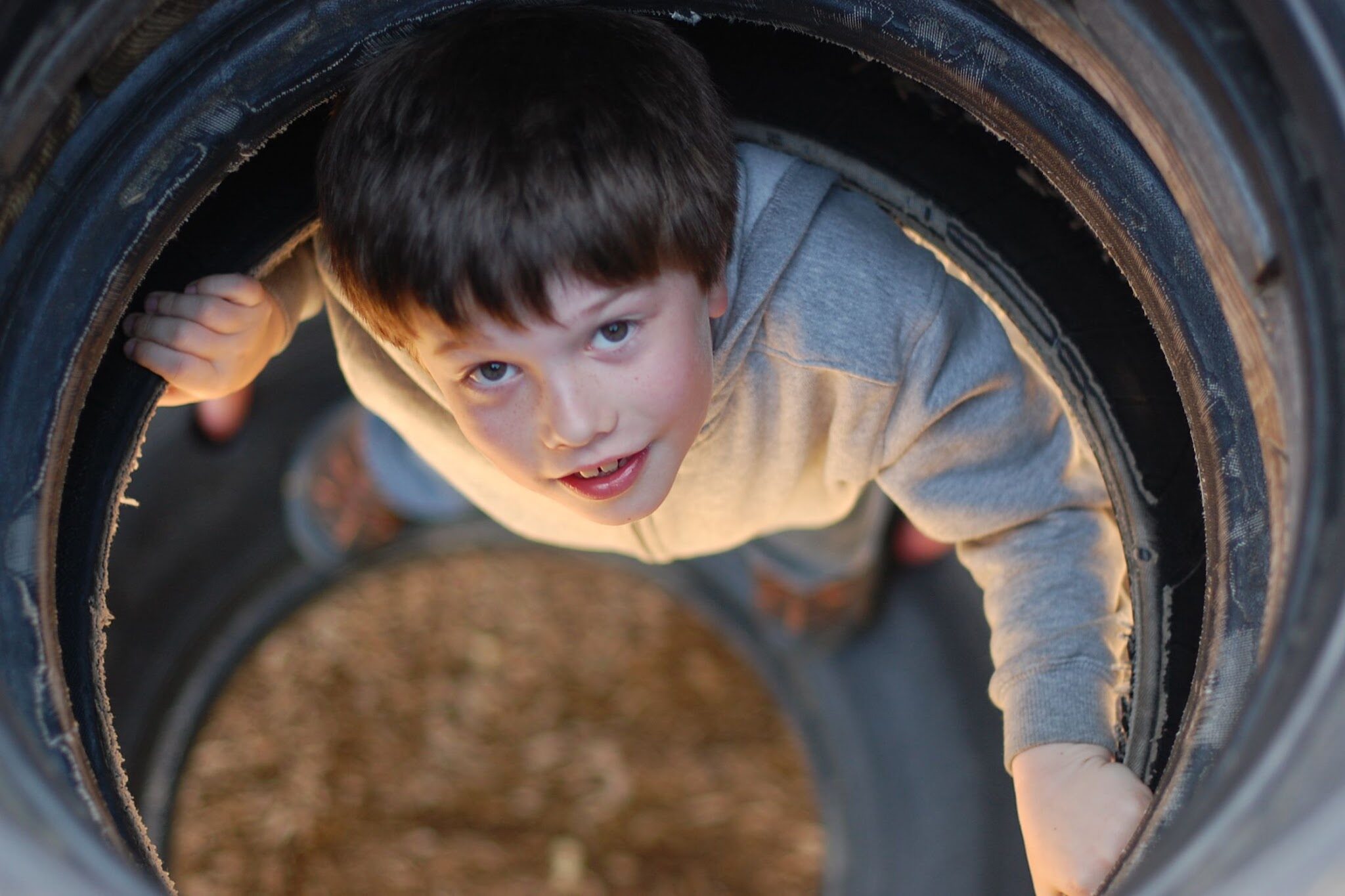Kristina Chew autism.typepad.com Kristina blogs about parenting her teenage son Charlie at the URL above. This post was one of Kristina’s recent daily dispatches. We just got through one of those begins-with-whacking-the-corner-of-the-iPad on the bedroom wall storms, though several degrees less bad than the one Charlie had the night before he went back to school, almost exactly a month ago. He called and called for his iPad after things were over but (powdery with plaster dust from the wall), the iPad remains on the brown chair: As we told Charlie, he needs to sleep first then he can have it. It is past 2am and I want to take one fast glance at some things pertaining to Herodotus but I just wanted to say something I’ve had on my mind for years: I really get all-out annoyed when people make references to head-banging and head-bangers and head-smack-on-desk and that sort…
Tag: language
Lydia Brown autistichoya.blogspot.com It’s everywhere. “Autism isn’t mental illness. We’re not like those people.” “It wasn’t an autistic person who would commit mass murder. Only people with actual mental illness, like psychopaths or schizophrenics do that kind of thing.” “Those ideas are insane!” “Autism Speaks’s idea of representing Autistic people is absolutely crazy.” “People who want to give their kids bleach enemas are just nuts. Their ideas are nuts.” It comes not merely from Autistics and non-Autistic parents and professionals and researchers but also from Autistics and non-Autistic parents and professionals and researchers who are disability rights advocates and activists. Take the humble pill, recognize your own strands of ableism, and stop using the ableist language. It is not okay to refer to ideas and people with whom you disagree as ‘insane’ or ‘crazy’ or ‘nuts’ or ‘loony,’ because those are hateful and hurtful words just as much as the…
Jess at Diary of a Mom www.adiaryofamom.wordpress.com If you were to sit down and read my blog Diary of a Mom from its inception back in 2008, I’m sure you’d notice some pretty dramatic changes. Many of the words I use and the way I use them have changed. And the change in verbiage is reflective of a change — an evolution really — in my understanding of autism. When Brooke was first diagnosed, I bristled at the word ‘autistic’ when it was assigned to her in conversation. I actually found it offensive. “Person first!” I would shout in my head as I calmly responded, “my daughter HAS autism,” emphatically yet (theoretically) politely ‘correcting’ the perceived gaffe. And then, somewhere along the line, I read THIS: Jim Sinclair’s Why I Dislike ‘Person First’ Language. And something shifted. I had never considered the words nor what they represented from the inside…
Photo © Fran López | Flickr / Creative Commons [image: Photo of a page from a play script, furled so the words form a spiral.] Bev Harp www.aspergersquare8.blogspot.com It seems that one of the hardest things for typical people to understand about autism is the way skill sets can seemingly change overnight, so that although, for example, I spoke very well yesterday, I can barely manage to put a sentence together this morning. I understand the skepticism I’ve encountered about this; before I knew much about autism, it’s one of the things that most made me doubt myself and question my sanity. This doesn’t apply only to speech and it isn’t always about short-term changes either. That’s just the aspect of life I’ve chosen to talk about today. Some of the people I interact with on a regular basis are familiar with some of the scripts I use on days when…
Lydia Brown autistichoya.blogspot.com At the Adult Services Subcommittee’s final meeting in late July, much to do was made about semantic disagreements — “ASD individual” versus “individual with ASD,” and of course, the dreaded “person with autism” or “person who has autism” versus “autistic person.” These issues of semantics are hot button issues, and rightfully so. Words and language are powerful tools by which an individual can express ideas, whether abstract, actionable, or concrete. As a writer and editor, I know firsthand that language and the meanings we attach to words very much impact, influence, develop, and change the attitudes that we have toward the subjects of discussion. That is why people are easily insulted or upset by word choices. Changing a phrase — even if it holds the same literal meaning — alters the subtle connotations and nuances of the speech, and communicates a different meaning and context than the…
Diane Levinthal www.SocialStrides.com Unless a child is diagnosed with a learning disability that is known to affect social interaction, issues can take parents by surprise. All of a sudden, we notice that the same children who played alongside peers in daycare are now alone at recess during the early elementary school years. They want friends and try to interact with peers but without success. At this age children engage in cooperative play and interactions are based on peer choice, not just who happens to be in the class or in a playgroup mom selects. Now they must be able to read the subtleties of verbal and nonverbal language and tell the difference between literal and non-literal language across people (authority figures, peers, family, acquaintances, friends) and settings (school, community, home). We take this ability for granted, but it is an awesome leap in development. We expect them to absorb the…
Emily Willingham biologyfiles.fieldofscience.com daisymayfattypants.blogspot.com For background on this post, see the coverage and update at LoveThatMax.com. -The Editors When I was young, I lived a somewhat sheltered life. My parents never used racial or ethnic slurs around me or not around me, and even though I grew up in a small-ish, very southern town, the only slur I ever learned before middle school was the N-word, which I am myself to blame for having learned. At age five, rapt with the poetry of rhyme, I was working my way through the alphabet, rhyming with the word “Tigger.” When I reached N, my parents became rather dramatic and, let us say, instilled in me a permanent repulsion for the word. I was in Texas, so naturally, I did manage to hear that term again here and there. But it wasn’t until high school that I came across other slurs, mostly having…
Emily Willingham daisymayfattypants.blogspot.com biologyfiles.fieldofscience.com Since TH was in kindergarten, he’s had a nemesis. Ironically, it was the very first person he met at his school, as we had just moved into the district. Idiots that we were, we thought she seemed pretty nice and encouraged TH to engage with her. Of course, he didn’t. Or, at least, he didn’t do it the “right” way. Two weeks into the kindergarten year, we learned that a parent had contacted the teacher, complaining about our son, claiming he’d made “death threats” against her son. Turns out, her son and this girl we’d met that first day together had teamed up against TH and had (and I’m not making this up) threatened to cut his head off and throw it in the trash. TH had parrotted this back to them, and that’s the part that the boy had told his mother, conveniently skipping over…
This session was introduced by Geri Dawson, and included a number of presenters, whose work I am only summarizing briefly. Again, any omissions or errors are my doing. -SR Chair: Geri Dawson, Chief Science Officer for Autism Speaks Why a specific focus on nonverbal kids with autism? Because they’re often not included in research — such kids can be difficult to test, especially when so many evaluation paradigms include verbal testing. As a result, little is known about why some kids with autism don’t develop spoken language, or even what best approaches are. Biggest challenge: Evaluating cognitive abilities! Lots of kids who appear to have intellectual disability do not, at least not to degree perceived. In 2008, Autism Speaks launched a special initiative focused on nonverbal autism, and in April 2010, NIH sponsored a workshop to address what we do know, and gaps in knowledge. We need understand that nonverbal…
Christa Dahlstrom http://hyperlexicon.blogspot.com/ Today you are seven years old. One of the big kids now. But you’re far from turning jaded or sullen. Not you. Your primary mode of transport is skipping. You sing your heart out, just for your own entertainment, without a drop of self-consciousness. You are almost always in the midst of improvising an action adventure movie or a comedy skit. “This is the part where we’re running away and the cave is collapsing and there’s going to be an avalanche. Ready? Ahhhhhhhhh!!!!!” “Mommy, I’ll take a drink and then you tell me something surprising and then I’ll spit it out. Okay! Go!” Occasionally, when you can’t find the words for something, you come up with your own, infinitely more interesting, way to say it. “Do you want to know why I didn’t finish my breakfast? My food microbes are not at 100 percent.” ______ You know…

